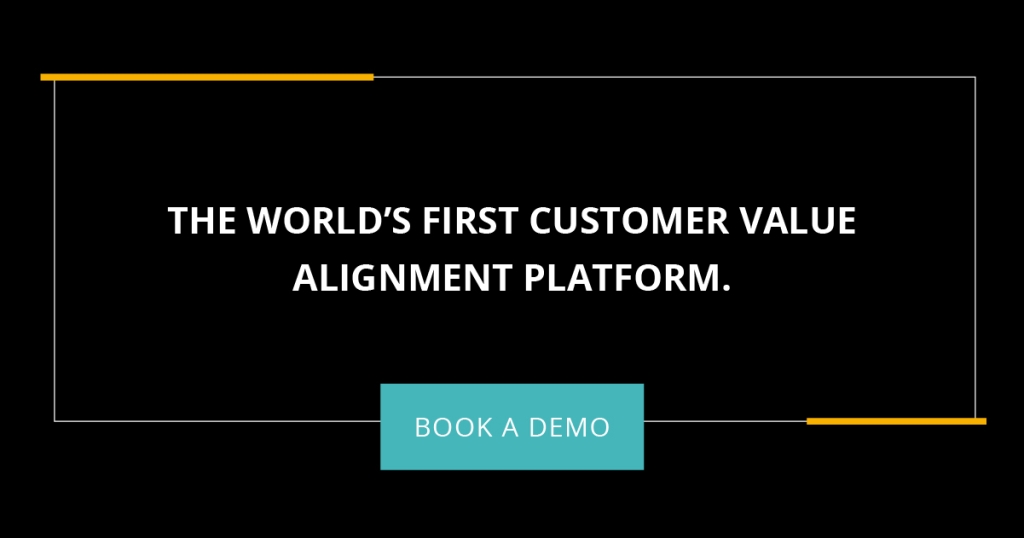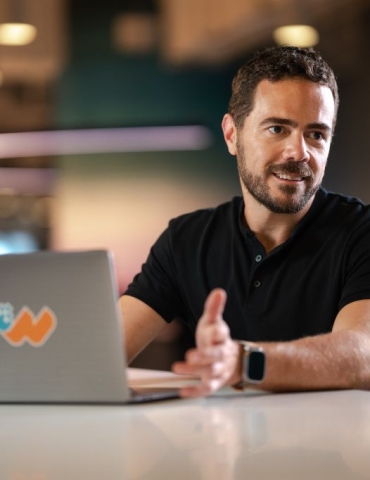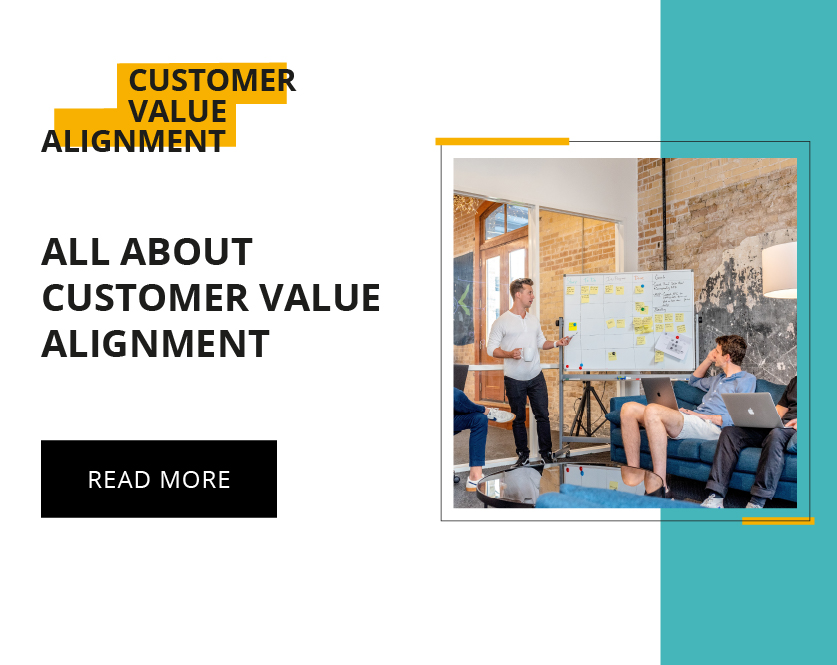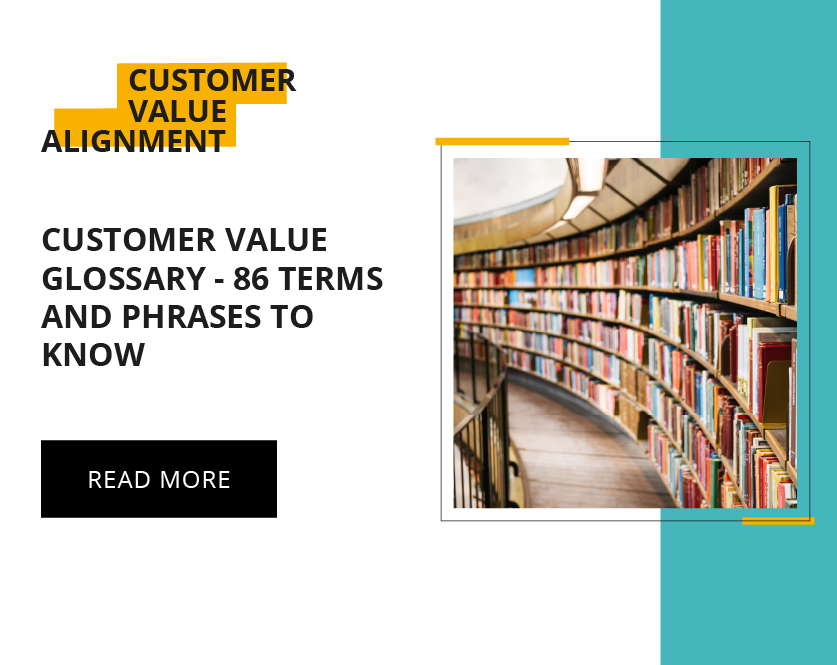Corporate Social Responsibility can be a key lever to delivering and aligning company offerings to what their customers value, especially when their target customer cares strongly for our planet, its natural resources, and the defense of human rights. This profile of customers will only buy products and services that align with their ethical standards and can switch products or services when companies don’t meet those expectations.
Every industry has its own somewhat unique mix for measuring how successfully it creates value for its customers, and different visions for what that success looks like. But regardless of what their measure of success is – offering the best price, quality products, excellent service, or strong brand identity – industry leaders and disruptors alike can trace that success back to Customer Value Alignment.
Customer Value Alignment – The extent to which a company’s offer aligns with the expectations and perceptions of value of its customers.
To achieve Customer Value Alignment, companies need a thorough understanding of the evolving expectations of their target customers to design (and continuously redesign) their offerings and practices accordingly. The results are undeniable: increased customer satisfaction, trust, loyalty, market leadership, and longevity.
Here are 8 examples of companies whose corporate social responsibility programs deliver value:
Customer Value in Sports and Apparel:
1) Patagonia: This clothing company is famous for its high-quality outdoor clothing and its total commitment to environmental sustainability. Its products are durable and sustainably sourced, designed to meet the needs of both outdoor enthusiasts and the eco-conscious.
Where Patagonia really aligned itself with customers, however, is when the brand firmly resisted shareholder pressure to go public and donated its shares to a trust that will dedicate profits to protect the environment and fight climate change.
They realized that committing to shareholder value would mean being forced into a “growth at any cost” mindset, which would turn them away from their core value and jeopardize what customers valued most: their authentic stand against environmental degradation.
Patagonia proudly stands by that choice to honor what its customers value most and remains famously stringent about taking on any partnerships that conflict with its mission.
2) TOMS Shoes: TOMS is widely known for the origination of the “one for one” model, where for every pair of shoes purchased, a pair is donated to a child in need.
However, controversy arose when outside studies showed that beneficiaries of this program (Argentina, Ethiopia, Guatemala, Haiti, Mexico, Rwanda, South Africa, and parts of the US) began to exhibit dependency on outside donors and other unintended negative economic impacts.
Instead of being just a feel-good company, TOMS wanted to do good for its customers and beneficiaries. To re-align its values with its customers’ values, TOMS moved away from its one-for-one model, expanding into impact grants (per 2019 Impact Report) to help those in need.
TOMS continues to invest 1/3 of its profits back into local communities and grassroots organizations through these grants.
3) Warby Parker: This eyewear company’s core mission is to create affordable and sustainable eyewear, and to bring quality eyewear to an underserved online marketplace.
The company is committed to designing products and experiences that help people see, prioritizing customer feedback, and reducing their carbon footprint (2022 impact report).
Warby Parker comprises most of its packing and shipping materials from recyclable material and works in conjunction with Eastman Chemical to reduce the impact of single-use plastics from items such as demo lenses. In 2022, they saved 20,000 pounds of single-use plastic from landfills.
Just 2.5% of eyeglasses were purchased online before Warby Parker entered the market. Their online presence allowed them to reach previously underserved and underprivileged markets where an ophthalmologist might not have been available or affordable.
They also pioneered at-home try-ons, where customers could have 5 frames of their choice shipped to their home to make their selection. More recently, they’ve debuted tech solutions for virtual try-ons.
4) Cariuma:* This shoemaker found its customer value alignment niche at the crossroads of sustainability, style, and comfort. Its sneakers are made from eco-friendly materials, and in its own take on “one for one”, the company plants a tree for every pair of shoes purchased.
Cariuma is also a certified B-Corp. They started their own Reforestation Program in their founders’ homeland, Brazil, where the rainforests are home to an increasing number of endangered plants & animals. For every pair of sustainable sneakers purchased, they plant a pair of trees in the Brazilian rainforest to directly aid in the restoration and preservation of these natural habitats.
They found customer alignment with people who value environmentally friendly products and practices, and shoes that would stand the test of time in both durability and style.
- Cariuma uses Worthix to continuously track how aligned they are with their customer value by monitoring changes in their perceptions, expectations, and market alternatives. Ask one of our experts how it’s done below.

5) Nike: This sportswear company takes its position as a brand made for all athletes seriously. When Colin Kaepernick was in the crosshairs for kneeling in protest, Nike backed him completely.
They took the customer values of social justice and racial equality to heart publicly and rebounded stronger despite the ensuing controversy.
Customer Value in Grocery and Home Care
6) Seventh Generation: This household cleaning and personal care products company takes the increasingly prevalent customer values of sustainability and corporate responsibility to heart, starting with its name.
The company attributes the name “Seventh Generation” to the “Great Law of the Iroquois”, which states: “in our every deliberation, we must consider the impact of our decisions on the next seven generations.”
To uphold that ideal, Seventh Generation’s products are made from natural and biodegradable ingredients and are packaged in recycled materials that are also easier to recycle, reducing their use of virgin oil wherever possible. Importantly, they understand that their customers value corporate responsibility and sustainable practices over price. Their products maintain a high grade of quality and practicality, even when composed of 99% recycled material.
7) NotCo: This company takes plant-based foods to a new level. NotCo’s goal is to reduce Co2 emissions, protect wildlife diversity, and reduce resources wasted in farming all at once by reducing reliance on animal products.
NotCo strongly emphasizes the quality of its products. Its AI named Giuseppe tests infinite combinations of plants to create foods that look, taste, and cook as close as possible to their true meat or dairy counterparts.
Their customer value aligns with people who want to help the planet, but don’t want to give up the quality foods they’ve grown used to. Crucially, NotCo’s customers must also be less price-sensitive since their food alternatives are more expensive than their counterparts.
Customer Value in Automotive
8) Subaru: This carmaker lives by the “Subaru Love Promise“, which is the company’s vision to show love and respect to everyone, and to support its communities and customers nationwide”.
You can see this throughout their messaging and ads, as well as their commitment to serving customers.
Some locations even remove sales commission from the equation to make sure the customer is getting the car they want at the price they’re looking for without being pressured into a bad sales experience.
Their alignment with customer value on service and customer care has made Subaru Kelly Bluebook’s Most Trusted Brand for eight years running, a real feat in an industry that is generally considered untrustworthy.
CSR is just one path to Customer Value Alignment
It’s not enough to simply create value. That value must also align with what customers need and expect for a company to remain customers’ top choice. Furthermore, that value must be continuously monitored and maintained for a company to stay relevant.
Customers are the driving force that makes and breaks markets, not companies, so any changes in core customer values should be reflected in the company’s offerings as quickly as possible.
CSR is one of many paths to building long-lasting relationships and loyalty with customers who share a concern for topics such as climate change and human rights. There’s more than one way to Customer Value Alignment and maintain relevancy. Not every path will be the right fit for both you and your customers, so understanding where to go before you commit is invaluable.





